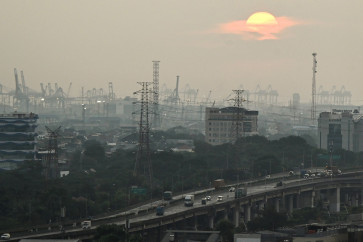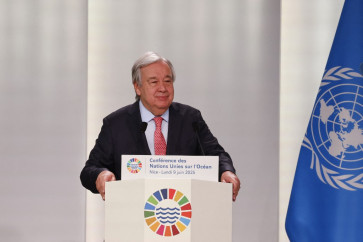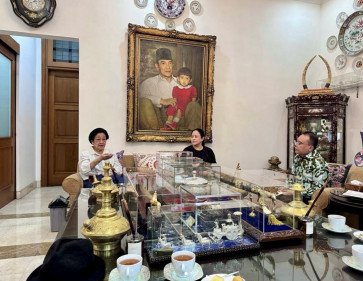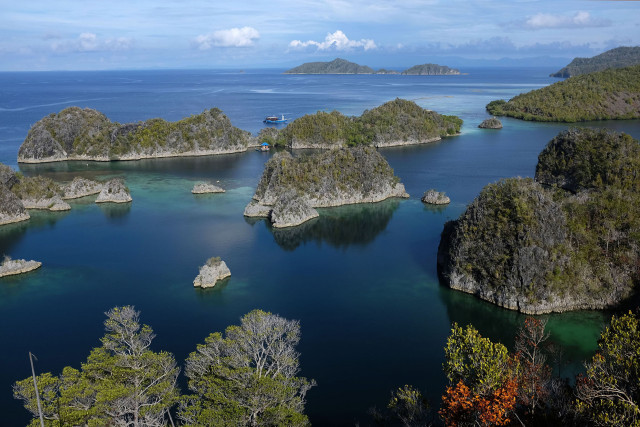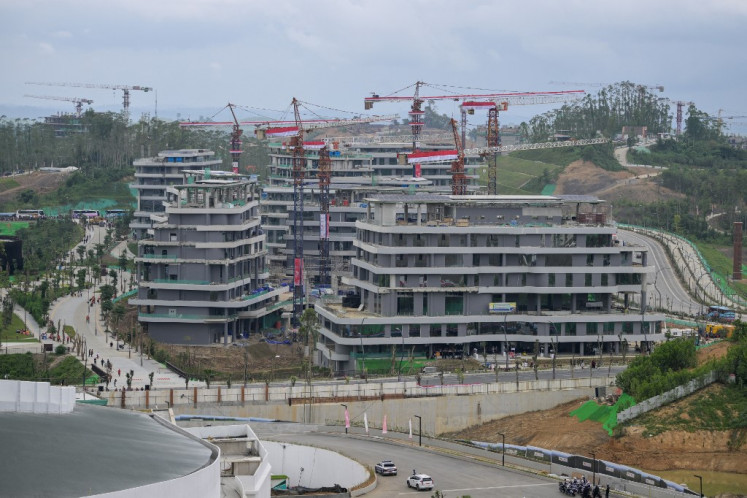Govt officials’ interests in coal industry lead to violations in Kalimantan: NGOs
Environmental NGOs have urged the government to limit the involvement of state officials in the coal industry to avoid abuse of power that could also result in rampant environmental damage
Change text size
Gift Premium Articles
to Anyone

E
nvironmental NGOs have urged the government to limit the involvement of state officials in the coal industry to avoid abuse of power that could also result in rampant environmental damage.
Greenpeace Indonesia, the Mining Advocacy Network (JATAM), Indonesia Corruption Watch and Auriga have revealed that some coal companies in East Kalimantan, which are claimed to be connected to Coordinating Maritime Affairs Minister Luhut Pandjaitan, have abandoned mining sites without backfilling them as stipulated in Law No. 4/2009 on minerals and coal mining.
The sites have now become large ponds that contain very acidic water, as well as metals such as aluminum, lead and mercury. Water from one of the ponds has purportedly flown into the Nangka River in Balikpapan, East Kalimantan, threatening the lives of many.
Just last month, 11-year-old Nurul Huda Aulia drowned in an abandoned tailing pond in Samarinda, East Kalimantan — adding to the long list of deaths that occurred at abandoned coal mining sites. JATAM recorded that at least 32 people, including children, have died in tailing ponds.
The group accused the local administration of allowing the violations to occur and not punishing the companies.
“Mining companies can violate regulations without legal consequences because their owners are political figures or have connections with them,” the NGOs said in their collaborative report entitled Coalruption: Political Elites in Coal Businesses.
The report said coal firms PT Trisensa Mineral Utama, PT Indomining and PT Adimitra Baratama Nusantara — the subsidiaries of energy and plantation firm PT Toba Bara Sejahtra — had reportedly abandoned mining sites in the province.
Toba Bara Sejahtra is partly owned by PT Toba Sejahtra, which was cofounded by Luhut in 2004.
In response to the report, Luhut said he had withdrawn his interests in Toba Sejahtra’s businesses at the time he became a government official.
“For the past four years, I have only carried out my duties as a state official and I am no longer involved in business,” Luhut said, adding that he had sold his shares in Toba Sejahtra.
In January, the Indonesia Stock Exchange recorded that Singapore-based Highland Strategic Holdings owned 61.9 percent of shares in Toba Bara Sejahtra while Toba Sejahtra owned 10 percent.
Tata Mustasya from Greeenpeace Indonesia revealed that there was a positive correlation between corruption and increasing coal activity in Indonesia in recent decades. More than 10,000 mining operation permits (IUP) had been issued as of 2010, a significant increase from 750 permits in 2001.
Prior to 1999, IUP issuance was managed by the central government, but the duty was taken over by the local administration. According to the NGOs, this structure of governance is prone to bribery.
“Local leader candidates often ask for campaign funds from [coal] companies and offer the IUPs in return, if they win the political contests,” Tata said.
The report revealed that among officials involved in such practices were then-Kutai Kartanegara regent Rita Widyasari who issued at least 254 IUPs during her tenure, and then-Samarinda governor Achmad Amins who issued 63 permits without environmental impact analysis documents and other environmental permits.
The Jakarta Corruption Court sentenced Rita to 10 years in prison for accepting bribes in exchange for permits.
The Jakarta Post tried to reach the Environment and Forestry Ministry’s law enforcement director general, Rasio Ridho Sani, to ask about his plan to stop corruption, but did not receive a response.

